Nearly 6 percent of global trade and 57.5 percent of the cargo transported in container that ships from Asia to the East Coast of the United States passes through the Panama Canal. Today, this important infrastructure is the focus of great concern in political, economic, and academic sectors given the [ … ]
Special Report
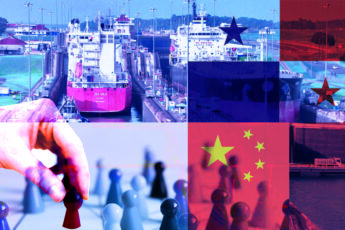

Iran’s Stealthy Steps in the Region: Latin America under Threat – PART II
The extent to which the Tehran regime has been promoting and increasing its presence in Latin America is striking. Its determined work in recent years to strengthen and intensify relations with countries in the region is leaving its mark. Today, the Islamic Republic already has 11 embassies in the region, [ … ]

Iran’s Stealthy Steps in the Region: Latin America under Threat – PART I
The criminal and bloody attack perpetrated against Israel by the Islamist armed movement Hamas on October 7, once again raised the alarm as to the role that the Islamic Republic could be playing in financing and helping to plan and execute this type of terrorist activities worldwide, and particularly in [ … ]

Warning Risks of Chinese Technology in Colombia
A recent report on the presence of technology companies from the People’s Republic of China (PRC) in Colombia has set off alarms about the risks involved with the Asian country’s investments in the sector. According to the Colombian political risk consultancy Colombia Risk Analysis, behind these investments are strategic interests [ … ]

The Risks of China-Made High-Impact Infrastructure in Colombia PART II
Colombia, unlike other Latin American countries, was until recently almost immune to China’s penetration. However, this has changed significantly in recent years. According to data from the Bank of the Republic of Colombia, in 2022 direct investment from the People’s Republic of China (PRC) tripled in the Andean country. The [ … ]

The Risks of China-Made High-Impact Infrastructure in Colombia PART I
The reach of the People’s Republic of China (PRC) in major infrastructure projects in Colombia has increased considerably in recent years. The first line of the Bogotá Metro, the Regiotram commuter train, and the Mar 2 Highway are just some of the million-dollar contracts awarded to the Asian country. Projects [ … ]
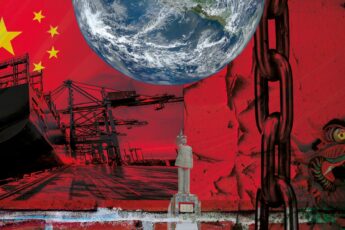
The Dragon Chases Its Tail
The findings of journalist Agustín Barletti’s sweeping investigation on China “China’s rampant penetration in Latin America is worrisome,” says Argentine journalist, writer, and editor Agustín Barletti after completing his most recent in-depth investigation: The Dragon’s Hunger. China’s Plan to Devour the World. After three years of study, and with an [ … ]
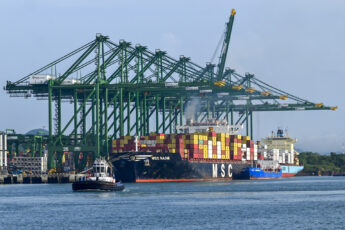
China’s Rapacious Port Expansion in Latin America and the Caribbean
In recent years, China’s expansion in Latin America and the Caribbean has been a topic of discussion in the world’s major political and economic circles. And the reason is clear: China seeks to become the region’s main trading partner and leader over the rest of the world in the financing, [ … ]
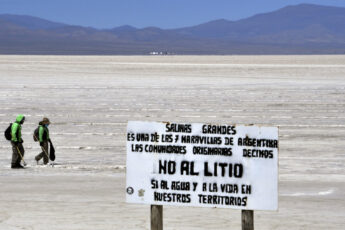
China Goes after South America’s New Treasure: Lithium PART II
With a triple action of state investment, diplomacy, and geostrategic corruption, China is leading the race for lithium. This situation was discussed in the first part of this report, exposing the tactics of the People’s Republic of China (PRC) to conquer the Andean countries rich in this metal. But what [ … ]

China Goes After South America’s New Treasure: Lithium PART I
With its vast salt flats, Latin America is rich in a metal that has become more sought after than gold: lithium. Known as white gold or the oil of the 21st century, this metal is now essential for energy transition and the booming market for electric cars. The so-called Lithium [ … ]
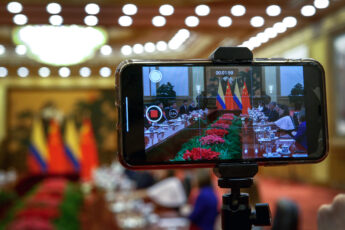
China’s Bet on Colombia, Seeking Its ‘Golden Age’ in Latin America
In the last two decades, the People’s Republic of China (PRC) has played a fundamental role in the economies of Latin America. Between 2005 and 2017, China lent several countries in the region close to $136 billion. The amount exceeded what, for the same period, the World Bank, the Inter-American [ … ]

Colombian Gold Enriches Criminal Groups, Impoverishes Soil and Population
Colombia is currently the 16th largest gold producer worldwide and the third largest in Latin America, according to the Statista world ranking. In 2022 alone, the country exported 70.7 tons of gold worth $2.9 billion, according to figures from Colombia’s National Mining Agency. Following oil, coal, and coffee, gold is [ … ]






